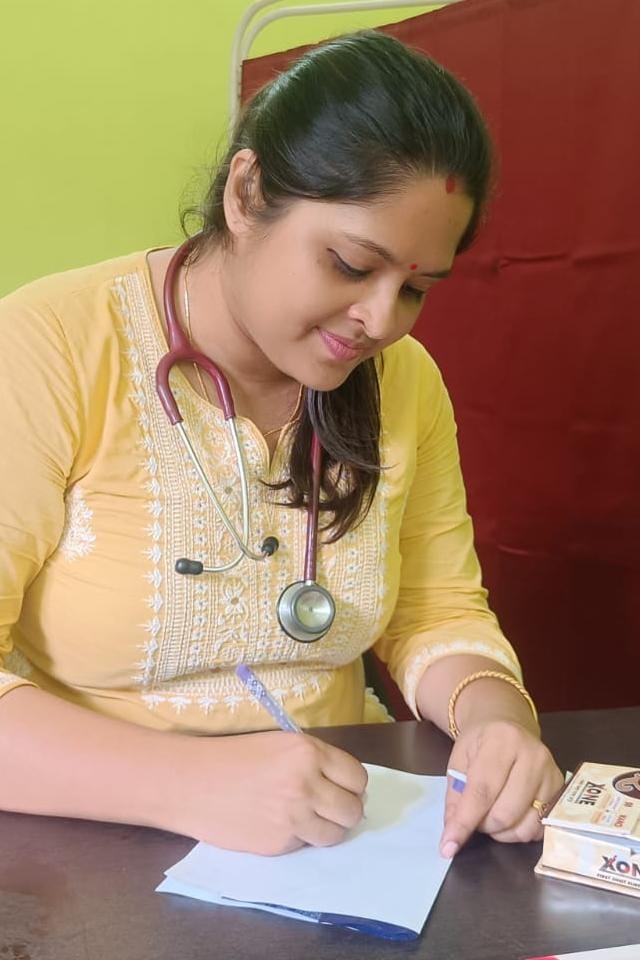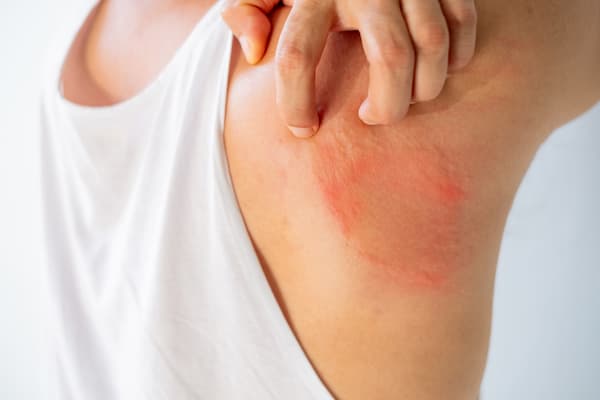How To Reduce Sweating?
Discover effective ways to reduce sweating with lifestyle changes, dietary adjustments, medical treatments, and natural remedies. Learn how to stay dry and comfortable with expert tips on managing excessive perspiration.

Written by Dr.Sonia Bhatt
Last updated on 3rd Jul, 2025
Introduction to Sweating
Sweating is a natural and essential bodily function that helps regulate body temperature. When we become hot, our sweat glands produce moisture, which then evaporates from the skin, creating a cooling effect. This process is crucial for maintaining a stable internal temperature, especially during physical activity or in warm environments. However, excessive sweating can be inconvenient, uncomfortable, and sometimes even embarrassing. In this article, we will explore various strategies to control sweating and improve overall comfort.
1. What is Sweating and Why Does It Occur?
Sweating is a natural process that helps regulate body temperature. It occurs when sweat glands produce moisture in response to heat, physical exertion, or emotional stress. As the sweat evaporates from the skin, it creates a cooling effect. This mechanism prevents the body from overheating and maintains a stable internal temperature.
2. Normal Vs. Excessive Sweating
Here’s a detailed comparison between normal and excessive sweating:
| Aspect | Normal Sweating | Excessive Sweating (Hyperhidrosis) |
| Definition | A natural process where the body produces sweat to regulate temperature. | A condition where the body sweats excessively, even without typical triggers. |
| Common Triggers | Warm weather, physical activity, spicy food, or emotional stress. | Occurs unexpectedly, even in cool environments or while at rest. |
| Sweat Levels | Moderate and appropriate to the situation. | Excessive, beyond what is needed for temperature control. |
| Impact on Daily Life | Does not interfere with normal activities. | Can be disruptive, leading to discomfort, embarrassment, or difficulty in social and professional settings. |
| Areas Affected | Commonly occurs on the face, armpits, hands, feet, and back. | Often localized to specific areas like palms, soles, armpits, or can affect the entire body. |
| Medical Concern | Generally not a cause for concern. | May require medical attention if it significantly affects quality of life. |
Common Causes of Excessive Sweating
Excessive sweating can occur due to various factors, ranging from genetic conditions to underlying medical issues. Understanding the causes can help in identifying the right treatment and management strategies.
1. Primary Hyperhidrosis
Primary hyperhidrosis is a condition where the body's nerves become overactive, leading to excessive sweating without any underlying medical cause.
It primarily affects specific areas like the palms, feet, underarms, and face.
This condition is often hereditary and usually begins during childhood or adolescence.
2. Secondary Causes
Unlike primary hyperhidrosis, secondary sweating occurs due to an underlying health issue or as a side effect of certain medications.
Health conditions such as diabetes, infections, menopause, and thyroid disorders can trigger excessive sweating.
Some medications, including antidepressants and pain relievers, may lead to increased perspiration as a side effect.
Lifestyle Changes to Manage Sweating
Making simple adjustments to daily habits can help control excessive sweating and improve overall comfort. Here are some effective lifestyle changes:
1. Wear Breathable Clothing
Choosing the right clothing can significantly reduce discomfort caused by sweating.
Opt for light, loose-fitting fabrics such as cotton and linen to improve ventilation.
Wear light-coloured clothing to reflect heat and avoid synthetic materials that trap moisture.
2. Practise Good Hygiene
Maintaining proper hygiene can help manage excessive sweating and reduce body odour.
Shower regularly with antibacterial soap to eliminate odour-causing bacteria.
Use absorbent powders on areas prone to sweating, such as underarms and feet, to keep the skin dry.
3. Manage Stress and Anxiety
Emotional stress can contribute to excessive sweating, particularly in the hands and face.
Practise relaxation techniques such as deep breathing, meditation, and yoga.
Engage in regular exercise to help regulate stress levels and improve overall well-being.
4. Keep Your Living Environment Cool
Regulating your surroundings can help prevent unnecessary sweating.
Use fans, air conditioning, or open windows to keep indoor spaces well-ventilated.
Wear moisture-wicking socks and change them regularly to prevent sweaty feet.
Dietary Adjustments to Reduce Sweating
Making changes to your diet can help control excessive sweating by reducing triggers and promoting better body temperature regulation. Here are some key dietary adjustments to consider:
1. Foods and Beverages to Avoid
Certain foods and drinks can overstimulate the sweat glands, leading to increased perspiration.
Spicy foods such as chilli peppers stimulate the nervous system, raising body temperature and triggering sweating.
Caffeinated drinks like coffee, tea, and energy drinks activate the nervous system, increasing sweat production.
Alcohol causes blood vessels to dilate, raising body temperature and inducing sweating.
2. Hydration and Its Role
Staying hydrated is essential for maintaining a balanced body temperature and reducing excessive sweating.
Drinking plenty of water helps cool the body, minimising the need for sweating.
Eating water-rich foods such as cucumber, watermelon, celery, and leafy greens can keep the body hydrated and regulate temperature.
Consult Top General medicine specialist
Topical Treatments for Sweating
Using topical treatments can help control excessive sweating by reducing moisture production in specific areas. Here are some effective options:
1. Over-The-Counter Antiperspirants
Regular antiperspirants can help manage mild to moderate sweating by temporarily blocking sweat glands.
Most antiperspirants contain aluminium chloride, which helps reduce sweat production.
For best results, apply antiperspirant at night, allowing it to absorb fully and work more effectively.
2. Prescription-Strength Antiperspirants
For individuals with severe sweating, stronger medical-grade antiperspirants may be required.
Doctors can prescribe antiperspirants with higher concentrations of aluminium chloride for better sweat control.
These formulations are particularly useful for areas like the underarms, hands, and feet, where excessive sweating is most common.
Medical Treatments for Sweat Reduction
For individuals with excessive sweating that does not improve with lifestyle changes or topical treatments, medical interventions may be necessary. Here are some advanced treatment options:
1. Medications
Certain oral medications can help reduce sweating by blocking nerve signals that stimulate the sweat glands.
Doctors may prescribe anticholinergic drugs, which limit sweat production.
While effective, these medications may cause side effects such as dry mouth, blurred vision, and dizziness.
2. Botox Injections
Botox is a widely used treatment for excessive sweating, particularly in areas like the underarms, palms, and feet.
The injection temporarily blocks nerve signals responsible for activating sweat glands.
The effects typically last 6 to 12 months, but repeated treatments are necessary for long-term results.
Surgical Options
For severe cases of excessive sweating that do not respond to other treatments, surgical procedures may be considered. These options provide long-term relief by targeting the sweat glands or the nerves responsible for sweating.
1. Endoscopic Thoracic Sympathectomy (ETS)
ETS is a minimally invasive surgical procedure that disrupts nerve signals responsible for excessive sweating.
It is typically recommended for individuals with severe palmar hyperhidrosis (excessive sweating of the hands).
The procedure involves cutting or clamping the sympathetic nerves in the chest to reduce sweat production.
ETS is usually a last resort, as it may cause compensatory sweating (increased sweating in other areas of the body).
2. Other Surgical Interventions
Alternative surgical treatments focus on directly removing or disabling the sweat glands.
Microwave therapy uses heat energy to destroy sweat glands, permanently reducing excessive sweating.
Sweat gland removal surgery is an option for underarm hyperhidrosis, where the affected glands are surgically excised to prevent sweating.
Natural Remedies for Sweating
For those looking for alternative ways to manage excessive sweating, natural remedies can provide relief. These methods use herbal and home-based ingredients to help regulate perspiration.
1. Herbal Supplements
Certain herbs have natural properties that help control sweat production.
Sage tea contains astringent compounds that help reduce sweating by tightening the skin and minimising moisture production.
Witch hazel can be applied directly to the skin to tighten pores and limit perspiration, making it a natural antiperspirant.
2. Home Remedies
Simple household ingredients can also help absorb moisture and regulate sweat levels.
Apple cider vinegar balances the skin’s pH levels and acts as a natural astringent to reduce excessive sweating.
Cornstarch or baking soda can be applied to sweaty areas to absorb moisture and keep the skin dry.
When to Seek Medical Advice?
While sweating is a natural process, excessive or unusual perspiration can sometimes indicate an underlying health issue. Knowing when to seek medical advice can help ensure proper diagnosis and treatment.
1. Indicators of a Medical Condition
Certain patterns of sweating may signal a medical concern that requires professional evaluation.
Sudden, excessive, or localised sweating (such as sweating on only one side of the body) could indicate an underlying condition.
Night sweats accompanied by symptoms like weight loss, fever, or fatigue should be checked by a doctor, as they may be linked to infections, hormonal imbalances, or other health issues.
2. Unsuccessful Management with Home Remedies
If sweating persists despite attempts to control it, medical intervention may be necessary.
If lifestyle changes, home remedies, and over-the-counter treatments fail to provide relief, consult a healthcare professional.
A doctor can recommend prescription treatments, botox injections, or surgical options for more severe cases of excessive sweating.
Conclusion
Sweating is a normal bodily function, but excessive perspiration can be disruptive. By making lifestyle adjustments, using topical treatments, and considering medical options, you can effectively manage sweating. If excessive sweating persists, consult a doctor to rule out underlying medical conditions and explore suitable treatment options.
Consult Top General medicine specialist
Consult Top General medicine specialist

Dr. M L Ezhilarasan
General Practitioner
6 Years • MBBS
Visakhapatnam
Apollo 24|7 Clinic - Andhra Pradesh, Visakhapatnam

Dr. Jawwad Mohammed Kaleem
General Practitioner
4 Years • MBBS
Hyderabad
Apollo 24|7 Clinic, Hyderabad

Dr. Harshendra Jaiswal
General Physician/ Internal Medicine Specialist
12 Years • MBBS , MD (General medicine)
Kolkata
108 DHANA DHANVANTARI Clinic, Kolkata
(25+ Patients)

Dr. Divyashree K
General Physician/ Internal Medicine Specialist
5 Years • MBBS
Bengaluru
Apollo Clinic, JP nagar, Bengaluru

Dr. Swagata Sircar
General Physician/ Internal Medicine Specialist
8 Years • MBBS, MD General Medicine
Kolkata
HealthYou Speciality Clinic & Diagnostics., Kolkata
Consult Top General medicine specialist

Dr. M L Ezhilarasan
General Practitioner
6 Years • MBBS
Visakhapatnam
Apollo 24|7 Clinic - Andhra Pradesh, Visakhapatnam

Dr. Jawwad Mohammed Kaleem
General Practitioner
4 Years • MBBS
Hyderabad
Apollo 24|7 Clinic, Hyderabad

Dr. Harshendra Jaiswal
General Physician/ Internal Medicine Specialist
12 Years • MBBS , MD (General medicine)
Kolkata
108 DHANA DHANVANTARI Clinic, Kolkata
(25+ Patients)

Dr. Divyashree K
General Physician/ Internal Medicine Specialist
5 Years • MBBS
Bengaluru
Apollo Clinic, JP nagar, Bengaluru

Dr. Swagata Sircar
General Physician/ Internal Medicine Specialist
8 Years • MBBS, MD General Medicine
Kolkata
HealthYou Speciality Clinic & Diagnostics., Kolkata

